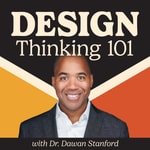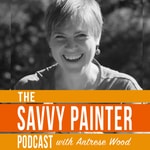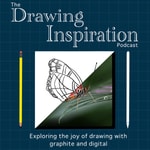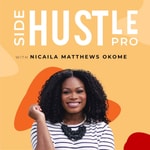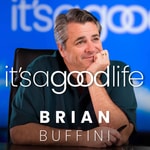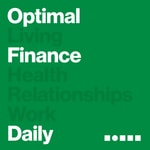Fuel Your Strength – Details, episodes & analysis
Podcast details
Technical and general information from the podcast's RSS feed.

Fuel Your Strength
Steph Gaudreau
Frequency: 1 episode/8d. Total Eps: 435

Recent rankings
Latest chart positions across Apple Podcasts and Spotify rankings.
Apple Podcasts
🇨🇦 Canada - nutrition
29/07/2025#37🇬🇧 Great Britain - nutrition
29/07/2025#39🇨🇦 Canada - nutrition
28/07/2025#40🇬🇧 Great Britain - nutrition
28/07/2025#98🇨🇦 Canada - nutrition
27/07/2025#67🇬🇧 Great Britain - nutrition
27/07/2025#52🇨🇦 Canada - nutrition
26/07/2025#37🇨🇦 Canada - nutrition
22/07/2025#79🇨🇦 Canada - nutrition
21/07/2025#44🇨🇦 Canada - nutrition
20/07/2025#70
Spotify
No recent rankings available
Shared links between episodes and podcasts
Links found in episode descriptions and other podcasts that share them.
See all- https://suicidepreventionlifeline.org/
1399 shares
- https://drruscio.com/getgutbook/
846 shares
- https://www.facebook.com/JillFit/
270 shares
- https://www.facebook.com/createthelove
136 shares
RSS feed quality and score
Technical evaluation of the podcast's RSS feed quality and structure.
See allScore global : 79%
Publication history
Monthly episode publishing history over the past years.
Beyond Strength: Powerlifting with a Purpose w/ Tamara Walcott
Season 1 · Episode 430
mardi 27 août 2024 • Duration 54:09
I want you to imagine a heavy deadlift. How challenging it is, the focus needed, to tune everything else out and give it your best. Now, imagine that the barbell weighs over 650 pounds. That is the reality for Tamara Walcott, a world record holder in powerlifting. But Tamara didn't always have this confidence. Having to overcome obesity and single mom guilt made Tamara the inspiring and powerful woman that she is today.
Key Takeaways
If You Want to Get Stronger, You Should:
- Work with people who support your goals and lift you up in times of hardship
- Accept that failure and obstacles are going to be part of the process and that you can overcome them anyway
- Fuel properly and often in order to support both your body and your mind
Overcoming Setbacks with Tamara Walcott
Tamara Walcott, the Plus Size Fitness Queen, is a record-breaking athlete, a resilient mompreneur, and a motivation to all. Her journey, marked by her triumph over food addiction and obesity, inspires others to embrace mental resilience and celebrate every victory. In this episode, we explore Tamara's world-record-setting story and join her on a transformative journey.
Stay Dedicated To Your Destination, Even If You Can’t See It
After stumbling into a powerlifting gym in 2017, Tamara realized that she would have to change from the inside out to achieve her goals. By 2018, she was coming in first place in her first competitions and realized that to take care of others around her, she had to take care of herself first.
Her mindset, mission, and ability to navigate setbacks helped her break an all-time world record while training just three days per week. These traits, combined with her dedication and ability to accept failure as part of the process, have gotten her to where she is today.
Your Strength Is Your Sexy
Proving to yourself that you can do something you couldn't do before is one of Tamara’s favorite parts of powerlifting. Her mission is to bring more women into the sport and eventually get the deserved recognition from associations such as ESPN and the Olympics.
She works to encourage women to stop letting comparison steal their joy and instead compete against themselves while ensuring they are fueling enough. If you believe in your ability to keep going despite the obstacles in the way, anything is possible.
Are you feeling called to lift something heavy? Share how you are getting involved in the community with me in the comments on the episode page.
In This Episode
- How Tamara got bit by the powerlifting bug (6:28)
- Surprising things about powerlifting as a sport and lessons learned (13:34)
- Discover the environment and energy of a powerlifting meet (16:46)
- Inner dialogue tips and the importance of pushing past your own limiting beliefs (26:40)
- Looking at the training schedule of a recording-breaking single power mom powerlifter (32:51)
- Understanding ‘My Strength is My Sexy’, ‘Women in Powerlifting’, and more (45:52)
Quotes
“I think that is the exciting thing about it, is that anyone can be a part of this sport, and not a lot of people know about it yet. Which is why I want to keep talking about it.” (5:36)
“You get one minute to do your movement. But that one minute feels like 10 seconds. But it’s the best 10 seconds of your life.” (17:24)
“Powerlifting literally saved my life.” (19:40)
“I think the most common misconception, even when I was heavier, was that I had to eat less in order to lose weight. I had to eat less to be at the body aesthetic that I wanted to be. It's not that you have to eat less, you just have to eat the right things and fuel your body right for whatever your performance is or what your program is.” (35:39)
“Failure is a part of the process. It doesn't mean to quit and give up, it means to learn what you can learn and press on.” (41:27)
Featured on the Show
Apply for Strength Nutrition Unlocked Here
My Strength Is My Sexy Gym Tour Tickets
Tamara Walcott 641LB Womens Elephant Bar Deadlift Record Video
Follow Steph on Facebook | Twitter | Instagram | YouTube | Pinterest
I'd really love it if you would take 1 min and leave us a rating and review on iTunes!
Podcast production & marketing support by the team at Counterweight Creative
Rate and review on Apple Podcasts
Related Episodes
FYS 378: Powerlifting and Recovery Tips for the 40+ Athlete with Laura Phelps
FYS 344: Body Acceptance & Powerlifting with Christina Malone
Boost Your Motivation to Train With This w/ Kasey Jo Orvidas
Season 1 · Episode 429
mardi 13 août 2024 • Duration 50:45
Whether you are on the client side or the coach side, if you are trying to make positive changes in your life in regard to fitness, nutrition, and your health in general, having strategies to help you take a step forward and get better results is crucial. Having the right approach when it comes to improving your nutrition and fitness, especially when dealing with a lack of motivation or self-sabotage, comes down to the science behind health behavior change.
Key TakeawaysIf You Want to Understand Your Mindset Better, You Should:
-
Work with a coach or a client who is willing to talk about and prepare for the hard stuff
-
Understand that mindsets can shift drastically and often
-
Be kind to yourself when struggling with a lack of motivation or self-sabotage
Kasey holds a Ph.D. in Psychology and is a certified health and fitness coach. She has spent a good chunk of her life developing some serious expertise in mindset and health behavior change. She has transformed hundreds of lives (and minds) in her coaching career, while also being published in multiple peer-reviewed scientific journals for her research exploring the relationship between our mindset and our health and fitness behaviors.
The Base of the PyramidYour mindset is the lens through which you see the world through, how you assign meaning to things, and how you make sense of what is happening around you. It is the base of the pyramid for your health and nutrition, which is why it is so essential to understand the science behind making positive changes.
When you are able to face mindset challenges, you can start working towards more consistency, more motivation, and ultimately better mindset health outcomes.
Not All Sunshine and RainbowsI'm sure you have heard people preaching positivity and mindset in the fitness space, but this is not a show about pushing through negative thoughts. Instead, Kasey Jo wants you to think about the hard stuff and prepare yourself for those inevitable moments when you get tripped up psychologically.
Addressing problems from a mindset perspective, whether you are a coach or a client, will help you determine which path will be the most successful in the long run. While truly understanding psychology, mindset, and behavior change is not necessarily the norm, Kasey Jo is working to fix that one person at a time.
Are you ready to take a deep dive into the role your mindset is playing in your health and fitness? Share your thoughts with me in the comments on the episode page.
In This Episode- Why this isn't just another mindset show (5:10)
- Understanding the spectrum of mindset science (12:16)
- How to collect evidence to stop your self-limiting beliefs (23:09)
- Tips for coaches on making a realistic yet optimistic plan for your clients (28:54)
- The difference between scientific evidence-based mindset work and other offers out there (34:20)
- How to understand the role of your own mindset as a coach and as a client (43:55)
Quotes
“Really, the stuff we are going to talk about today we are going to talk about from a health and fitness lens, but it can very much so be applied to other areas of your life too.” (6:11)
“Square one is where you are right now. So, literally, the worst-case scenario is just where you are right now. So the worst you can do is try, potentially be successful, level up, and get to this next spot and this outcome you are looking to achieve. Worst-case scenario you literally are where you are right now.” (18:11)
“When we are talking about behavior change and longer-term goal pursuit, just visualizing the outcome, just manifesting, is not that helpful. And this is according to the research. What is helpful is sure, do all of that, please do all of that, but then also bring it back to reality. Think about what is inevitably going to get in your way; talk about the barriers, the challenges, and the setbacks. (30:56)
“The reality is it is not all sunshine and rainbows all the time when you are working towards something new and challenging and different and trying to make changes in your life that you haven't been able to do before. And recognizing that things are going to be hard helps you have a different lens.” (31:25)
“If you can't tell, I am extremely passionate about what I do and can really get going on some of these topics. And that is exactly what it looks like inside the program as well.” (49:24)
Featured on the Show
Apply for Strength Nutrition Unlocked Here
Health Mindset Coaching Certification
Follow Coach Kasey Jo on Instagram
Follow Steph on Facebook | Twitter | Instagram | YouTube | Pinterest
I'd really love it if you would take 1 min and leave us a rating and review on iTunes!
Podcast production & marketing support by the team at Counterweight Creative
Rate and review on Apple Podcasts
Related EpisodesFYS 410: The Power of Intrinsic Motivation in Fitness
FYS 388: Why You're Struggling with Motivation to Workout
Blog: 5 Mindset Traps That Kill Motivation
Fueling and Fitness for Women: Physiology, Metabolism & the Data Gap w/ Dr. Alyssa Olenick (Part 1)
Season 1 · Episode 420
mardi 9 janvier 2024 • Duration 51:47
It is no secret that there are sex differences in fitness and nutrition. However, it might not be what you have been led to believe. Nutrition, training concepts, and fueling your workouts are key aspects to training whether you are a man or a woman. By empowering yourself with evidence-based science, you can take an informed approach to your fitness and strength training.
Key TakeawaysIf You Are Interested in the Data Behind Womens Physiology, You Should:
-
Work to understand what goes on in the research world
-
Be careful of how things are marketed to you
-
Listen to Part 2 of my conversation with Dr. Alyssa
Facing the Facts with Dr. Alyssa Olenick
Dr. Alyssa Olenick, or Dr. Lyss, is currently a Postdoctoral research student studying metabolism and menopause. She has a Ph.D. in Exercise Physiology, where she researched metabolism and exercise science in females. Dr. Alyssa is on a mission to redefine evidence-based fitness. She is passionate about science-based nutrition and fitness and how the two integrate so that she can help people become their healthiest selves while chasing their boldest fitness goals.
Finding Faith in the Data
While it is true that we need better data when it comes to female health in general, Dr. Alyssa says it's not all bad news. She encourages others not to be so critical of science and research until they really understand what it takes behind the scenes. The barriers faced are in part, the reason that we have this gap, but there is some solid data out there that can help you better understand your body and what it needs to succeed. By looking at the research with a lens of what we know, and where we need more information, you can translate that information into practical and usable tools that work for you.
Don’t Believe Everything You Are Sold
Unfortunately, what tends to happen is a ‘pinkifying’ effect from coaches, influencers, brands, and companies who are trying to put a pretty pink bow on anything deemed ‘for women only’. If you can avoid these marketing schemes and focus solely on what the research is telling us, you will see the results you have been looking for.
You don't need to engage with these cyclic and hormonal protocols, you just need to adopt proper training and fueling instead.
Have you ever been told to do something differently because you are a woman? Share your thoughts with me in the comments on the episode page.
In This Episode- Discover Dr. Alyssa’s origin story and why she fell in love with studying exercise physiology (5:04)
- Learn about the Invisible Sports Woman Study and how it has changed our approach to female fitness and physiology (11:34)
- Understanding the degree of misinterpretation of science in the quest to understand ourselves (20:19)
- Where sex differences play a factor in terms of nutrition and the menstrual cycle (29:25)
- Why fasted training may not be as beneficial as we are sold (40:04)
“Good education and good training can make all the difference in people's health and life, and so that's kind of just been my philosophy the whole way through.” (10:15)
“You have always had permission to listen to your body. You have always had permission to just intensity based on perception. You have always had permission to take a rest day if you feel like hot, flaming raccoon trash can garbage. And you have always had permission to fuel yourself appropriately to support your training.” (26:28)
“There is a difference between sex differences and menstrual cycle differences. Those are two completely different things that we are talking about here.” (29:52)
“You don't need radically different things. We see this with cycle training and pregnancy and menopause. It's repackaged pinkifyed versions of training that are literally the same thing you probably have boy college football players doing, but in a nice pretty, pink, ‘this is safe for you and good for you’ package.” (36:20)
“Whether you think you are an athlete or not, you want your session to give you the things that you want out of it.” (45:04)
Featured on the ShowApply for Strength Nutrition Unlocked Here
Follow Lyss on Instagram
Follow Steph on Facebook | Twitter | Instagram | YouTube | Pinterest
I'd really love it if you would take 1 min and leave us a rating and review on iTunes!
Podcast production & marketing support by the team at Counterweight Creative
Rate and review on Apple Podcasts
Related EpisodesFYS 393: 3 Ways To Increase Your Metabolism As An Athlete
How to Use Tapping for Food Freedom w/ Jason Winters
Season 1 · Episode 330
mardi 20 avril 2021 • Duration 45:52
Society has taught us that emotional eating is bad, and we should punish and restrict ourselves for it. The issue with emotional eating is when we use food as our only tool to cope or celebrate, but it can be part of a normal and healthy way to communicate with our bodies. The truth is, sometimes your body needs to eat emotionally, but it is up to you to distinguish when you are emotionally eating for good and when you are using it as a crutch. Tapping can help you lean into this intuitively so that you can shift your focus away from restriction and towards listening to what your body needs.
Key Takeaways
If You Want To Try Tapping To Resolve Your Emotional Eating You Should:
- Shift your focus away from emotional eating being ‘bad’ and deconstruct what diet culture has taught you
- Become aware of the reason you are emotionally eating and start to trust the signals your body is sending to you
- Hold space for your goals, intentions, and what you truly want out of your relationship with food
- Practice tapping regularly to clear your anxiety and fear and address your unresolved issues around food
Emotional Eating Isn’t Always Bad
Jason Winters is a Certified Holistic Health Coach, Intuitive Eating Coach, and Gold-Standard Emotional Freedom Techniques Coach. After overcoming his own battle with disordered eating, Jason pursued his passion to serve women and men still suffering from the emotional eating cycle. Now, Jason is on a mission to help empower and free you from the chains of emotional eating, diet culture, food obsession, and body hatred so that you can live your best life possible.
How To Get Clear on What You Really Want
The path of intuitive eating has changed many lives, including Jason’s, but that doesn't mean it comes without its fair share of struggles. Society has forced us to lose our ability to trust ourselves and what the right path for us is, which is why it is so important to get clear on what you are doing, what is working for you, and what isn't.
The first step is identifying what you really want out of your life. By holding space for your goals and intentions and doing it on your own terms, you can address your unresolved issues, learn how to acknowledge the negativity you are feeling, and most importantly, let it go.
The Beautiful Marriage Between Tapping, Emotional Eating, and Intuitive Eating
EFT, or Emotional Freedom Technique, is a powerful stress-relieving technique that combines Chinese acupuncture with modern psychology to address the fear of rejecting diet culture and guide you towards a more intuitive relationship with food.
Emotional eating, intuitive eating, and tapping come together beautifully because they help you break down the fear, stress, and anxiety you may be feeling and clear out your emotions. Tapping can help you process your energy and help you feel lighter and more equipped to handle the anxiety and negativity plaguing you. By learning how to better understand your emotions, you can take back the control that diet culture has stripped you of and start listening to what your body needs.
Have you ever tried tapping? How has it helped you on your intuitive eating or emotional eating journey? Share which of Jason’s nuggets of wisdom touched you the most with us in the comments on the episode page.
In This Episode
- Breaking down all of the stigma surrounding emotional eating (5:12)
- The first thing that you should do when you want to change your relationship with food (13:56)
- Learn from a brief synopsis of EFT and tapping and why it is used (18:46)
- Why the marriage of tapping and your intuitive eating journey is so powerful and important (23:44)
- Engage in the short tapping session along with Jason and Steph (32:36)
Quotes
“To shift that normal behavior around food, and to then demonize it and to shame people for engaging in it, it is a restriction of something that you want and that you need. And then it just turns emotional eating into a theme.” (7:14)
“What do you really want? I think that's the biggest thing is identifying what you want, and getting quiet enough to hear the answer of what you really want. Because intuitive eating, and intuitive exercise, and having an intuitive lifestyle, it is really about you.” (17:42)
“Tapping allows you to come out of control and more into choice. And the way that that happens is when you are tapping on these specific points, you are breaking down the fear.” (25:18)
“It's not just what we put in our mouth, it is our belief system. We are in choice, our affirmations you chose. So if you use someone else's affirmation, make sure it rings true for you, make sure it is your choice.” (31:40)
“When we are repeating or you are hearing these statements being made, this anxiety, this anxiety, this anxiety, you are addressing your specific anxiety, I am addressing mine, but we are all working together.” (41:52)
Featured on the Show
Food Freedom Tapping Worksheet
EFT: Tapping to End Chronic Emotional Eating Facebook Group
Follow Jason on Instagram | Facebook
Check out the full show notes here!
Follow Steph on Facebook | Twitter | Instagram | YouTube | Pinterest
I'd really love it if you would take 1 min and leave us a rating and review on iTunes!
Related Episodes
LTYB 278: Energy Tips For Empaths & Highly Sensitive People
LTYB 284: How Neuroscience Can Help You Listen To Your Body with Alyssa Chang
3 Pillars of Self-Trust w/ Shohreh Davoodi
Season 1 · Episode 329
mardi 13 avril 2021 • Duration 40:18
Listening to your body doesn't happen through a magic pill or a one-size-fits-all answer. It is about leaning into your self-trust and learning to embrace what makes you uniquely you. But how do we actually do that in a practical, hands-on way? The concept of self-trust is an all-encompassing one that considers a lot of different parts about who you are as a person, which is why it is essential to have the proper framework when diving into these topics.
Key Takeaways
If You Are Looking To Build Self-Trust You Should:
- Work on building up your consciousness, care, and compassion habits
- Acknowledge your privileges and how you can use them to help others in your community
- Lean into courage by questioning the things in your life that you may do out of habit
Learn How To Build Self-Trust with Shohreh Davoodi
Shohreh Davoodi is a self-trust coach who created her Three Pillars of Self-Trust Framework to help women overcome fear and self-doubt and become brave by conjuring up the courage inside of them. Her framework combines the three main pillars of self-trust, consciousness practices, care practices, and courage practices so that you can figure out who you are and what you value.
The Three Pillars of Self-Trust
The first step of self-trust is consciousness. This means having the awareness of the things in your life that you want to change, what is working for you in your life and what isn’t, and why. This usually deals with the systems in place in our society that are causing self-doubt, that really has nothing to do with you as an individual.
Next comes care practices. While we all know the importance of self-care, Shohreh takes it a step further and includes principles such as intuitive eating, intentional movement, sleep, and organization all as ways that you can care for yourself and let your body know that it can trust you to listen and take care of it.
The final piece of the puzzle is courage. Engaging with issues such as activism, setting boundaries, and having a more value-driven life are all ways that you can reconnect with your head, heart, and body, to do the things that make you feel good.
It Takes a Village That Stands Together To See Real Change
In order to engage more authentically with your own self-trust, you need to dive deep and look some scary stuff in the eye. We cannot self-trust our way into community liberation. It takes better community care and systemic changes so that everybody can have self-trust and a better relationship to food and their bodies.
There is no one right way to engage with these practices. By being more understanding and compassionate to the people around you, being in a community that lets you know that you are not alone, and dropping into your body in a time-sensitive way that feels good for you are the best ways to take steps to move closer to deeper self-trust.
What is one way that you are going to lean into your courage and let your body know that it can trust you? Share which of Shohreh’s tips you're going to integrate into your routine with me in the comments on the episode page.
In This Episode
- How the mentality of siloing everything you do is getting in the way of your ability to access body trust (9:12)
- Explore the three pillars of self-trust and the different parts of who you are that you need to consider (13:43)
- The role of marginalization and consciousness that play into the wellness space (19:32)
- Recommendations for advocating for the internal and external need for change on a systemic level (24:42)
- How to establish trust within your body through introspective awareness (27:55)
Quotes
“My niche is self-trust, but self-trust really encompasses so many different topics and ideas and ways of being in the world. So I can't just talk about self-trust, in talking about self-trust I have to talk about so many other things.” (11:10)
“Each of these pillars are important and can stand on their own, but they are most powerful when they bridge together. And that is the foundation of self-trust for an individual.” (15:01)
“Almost all of us have privileges in some places, even marginalized folks have privileges in some areas. So we can’t look at the marginalization without also looking at the privilege and how we contribute, knowingly or unknowingly, to the advancement of these systems.” (21:03)
“So often when someone is struggling to trust their own body, it is actually because they have gotten messages about bodies like theirs, and what a body like theirs should be or should look like or should feel like.” (32:06)
“For everyone who is interested in building more self-trust, the key to doing that is that you have to get to know you and what you want and what you value.” (35:08)
Featured on the Show
Follow Your Arrow Membership Program
One-On-One Coaching with Shohreh
Follow Shohreh on Instagram | Facebook | TikTok
Check out the full show notes here!
Follow Steph on Facebook | Twitter | Instagram | YouTube | Pinterest
I'd really love it if you would take 1 min and leave us a rating and review on iTunes!
Related Episodes
LTYB 305: Using Body Language To Understand Yourself and Others Better with Tiff Lee
LTYB 262: How To See Value Outside Your Body & Overcome Self-Doubt with Summer Innanen
Intuitive Eating and Alcohol
Season 1 · Episode 328
mardi 6 avril 2021 • Duration 28:57
Recently I was asked about the place that alcohol has when connecting to your inner intuitive eater. Thinking about alcohol use in the context of connecting to your body and healing your relationship with food is intensely personal, which is why I want to share my perspective with you as someone who has been a non-drinker for 5 years and also as an intuitive eating and nutrition counselor.
If you are struggling with substance abuse or are concerned about your relationship with alcohol, please contact 1-800-662-HELP. This episode contains my personal thoughts about alcohol, but at the end of the day, you have the freedom and autonomy to do whatever feels right for you. If you are struggling with substance abuse, please know there is support out there for you, and change is possible.
Key Takeaways
If You Want To Explore Your Relationship With Alcohol and Intuitive Eating You Should:
- Stop being afraid that you are going to want to binge drink if you decide to limit your alcohol intake
- Notice your personal relationship with drinking and assess how it makes you feel
- Reach out for support and make the decision that feels right to you in your own intuitive eating journey
The Difference Between Food and Alcohol
A common misconception is that food is addictive. In reality, the food ‘addiction’ you may be familiar with is a result of restriction and the binge eating that follows. Alcohol is different from food in this way. Reducing the amount you are drinking will not cause the majority of people to binge drink because alcohol is not required for survival like food is. Often people are reluctant to cut out alcohol because they are worried they will crave it all the time. Binge drinking and binge eating have different mechanisms and experiences, and it is crucial to understand how restriction with food differs from simply choosing not to engage with alcohol.
It’s Your Personal Journey, No One Else’s
A lot of people are concerned about doing intuitive eating ‘right’. Intuitive eating is not a set of yes or no rules, it is a set of personal guidelines, and your relationship with alcohol is included in that. I want you to use intuitive eating principles to ask yourself the tough questions and help you gain clarity on your personal experience with alcohol. Do you have a diet mentality when you are drinking? Are you drinking mindfully? Is alcohol your primary coping strategy?
By noticing your relationship with alcohol and assessing it, you can understand your own unique relationship to alcohol and if it fits into your intuitive eating journey.
Which of the questions I posed to you today got you thinking? How does your relationship with alcohol fit into your version of intuitive eating? Share your thoughts with me in the comments on the episode page.
In This Episode
- Exploring my personal relationship with alcohol use and intuitive eating (3:30)
- How to approach assessing and analyzing your own relationship with drinking (8:16)
- Understanding the connection between restriction and bingeing when it comes to food and alcohol (10:34)
- Tips for using the principles of intuitive eating when thinking about alcohol (17:40)
- Why you should analyze the emotional coping aspect of your relationship with food and alcohol (21:30)
Quotes
“There are a lot of questions that come up for people with regard to understanding how restricting food works or bingeing on food works, and how restricting alcohol and binge drinking works, and the fact that those aren’t necessarily the same thing.” (8:01)
“A lot of people will notice that if they start to cut down on their drinking, or they stop drinking altogether, they often don't notice an increased desire or preoccupation with drinking.” (13:11)
“You may decide that you are making peace with food over here, but when it comes to alcohol, if you realize that you are not enjoying it, that your relationship with it isn’t super great, you would rather just take it out for a while, its okay to remove it from your environment!” (15:42)
“It’s worth considering how these different principles of intuitive eating can apply to your relationship with alcohol and your drinking habits and know that the answers are going to be different for everybody.” (24:03)
“I hope that this show has given you some questions to ask yourself. I can’t promise that it is perfect, I can’t promise that my thoughts here are going to be exactly applicable to you. But I think it is really important to go through the questions that I raised in this show and to think about things on a really personal level for yourself.” (27:40)
Featured on the Show
Overcome Emotional Eating Workshop
Check out the full show notes here!
Follow Steph on Facebook | Twitter | Instagram | YouTube | Pinterest
I'd really love it if you would take 1 min and leave us a rating and review on iTunes!
Related Episodes
LTYB 114: Alcohol + Social Pressure
LTYB 205: The Great Big Sober Secret with Veronica Valli
LTYB 326: Your Body’s Changed During the Pandemic… Now What? With Evelyn Tribole
Getting Back to Exercise Without Feeling Wrecked
Season 1 · Episode 327
mardi 30 mars 2021 • Duration 34:59
Has it been a while since you've worked out, but you have a newly found motivation to get going? Are you diving into a fitness program only to be so sore afterward that it does not feel like it was worth it? Getting back into exercise after the crazy year we had is a great thing, but it needs to be approached in the right way to make sure it is sustainable for you.
Key Takeaways
If You Want To Get Back into Exercise Without Feeling Wrecked, You Should:
- Commit to a daily movement practice rather than a super intense workout that hurts your body for the rest of the week
- Modulate both the intensity of your workout and the volume to meet yourself where you are at
- Take care of your tissues and allow for proper recovery to avoid getting hurt
Ditch The ‘All or Nothing’ Mentality
When getting back into movement and working out, the first step is to get rid of the ‘all or nothing’ mindset that fitness culture has ingrained in us. Instead of going so hard once a week that you have to ‘toilet trust fall’ for the rest of the week, focusing on a daily movement practice is a much more sustainable and enjoyable way to ease yourself back into exercise.
Your body needs support when getting back into movement, which is why you need to integrate taking care of yourself into your daily routine. If you are ready to get reacquainted with a daily commitment to move your body, however, that looks and feels for you, a sustainable approach is the best way to honor your body's signals.
Start Where You Are Now
We are coming out of a whole year of the world being flipped upside down. The amount of stress you have been under, your daily routine, and your sleep can all affect how ready your body is to get active again. The high-intensity workouts that you may have done in the past might not suit your body's current needs.
It is essential that you modulate your intensity and volume of workouts and listen to the signals your body is sending you to properly heal your tissues and address the issues you are feeling. By listening to your body and taking the time to properly recover, you can get active again without wrecking yourself so that you can be more consistent, enjoy the benefits of your workout, and have fun while still challenging yourself.
Physical activity can be a fun, challenging, and positive experience if you approach it the right way. By shifting your mindset away from the ‘all or nothing’ mentality, modulating your intensity and volume, and focusing on your tissue recovery through nutrition and awareness, you can harness your good intentions and get active again.
Are you ready to take your motivation to get active again and implement it in a safe, healthy, and fun way? Share what your daily movement commitment is with me in the comments section on the episode page.
In This Episode
- Why you should focus on a daily commitment to move your body rather than ‘going hard’ (7:44)
- The importance of modulating your intensity and volume when getting back into movement (11:01)
- How to take care of your tissues and think about your recovery as you start to move more (17:12)
- What to think about when listening to your bodies signals in order to get more active again (21:58)
- Resources and recommendations to help you get active again and meet yourself where you are at (23:20)
Quotes
“I want you to start thinking about movement being more of a daily commitment instead of a once-a-week smash fest which then you can't move for the next five days and your body is so painfully sore that every step you take feels super painful.” (9:02)
“We have been taught by fitness culture in general that if it is not intensity level 10, that it was no good and we got no benefit from it. Which is absolutely not true.” (12:10)
“You need to think about what is leading up to me getting more active again and are there things I should probably deal with with my body?” (21:08)
“What I am seeing a lot in the community is still an under-eating situation. It's like an under-eating, under-recovery situation, and that is not going to help with your recovery.” (28:29)
“Recovery is a part of the process, and if you are coming out of a period of less activity, it might be something you need to think a little bit more about.” (30:06)
Featured on the Show
Join the CORE 4 Program Waitlist
Check out the full show notes here!
Follow Steph on Facebook | Twitter | Instagram | YouTube | Pinterest
I'd really love it if you would take 1 min and leave us a rating and review on iTunes!
Related Episodes
LTYB 319: Why Fitspo Needs To Die
LTYB 129: How Mobility Can Help You Unlock Your Inner Power with Jen Esquer
LTYB 055: How to Stand for Better Health Kelly & Juliet Starrett
Your Body's Changed During the Pandemic...Now What? w/ Evelyn Tribole
Season 1 · Episode 326
mardi 23 mars 2021 • Duration 52:09
We are now over one year into the global pandemic. While there is a sense of excitement and hope around seeing friends and loved ones who we have been absent from this past year, there is also a lot of anxiety around seeing people after your body has changed. Today the living legend Evelyn Tribole is here to share some of her best advice on these topics and help you navigate the world and your body in a post-pandemic situation.
Key Takeaways
If You Are Anxious About How Your Body Has Changed Throughout The Pandemic, You Should:
- Set boundaries within your bandwidth to focus on things other than bodies with relationships that may have been built on diet culture
- Embrace the opportunity to change the narrative and establish new social norms
- Normalize that it is okay to not be productive and just to survive
You Are More Than a Body
Nobody in the world has more experience in intuitive eating and the anti-diet space than Evelyn Tribole. Co-creator of the Intuitive Eating Framework, which was introduced into the world 25+ years ago, Evelyn is a wealth of wisdom when it comes to connecting and honoring our bodies.
Surviving Is Something To Be Proud Of
The first thing Evelyn wants you to remember is that regardless of your body changing over the last year, your body also survived a pandemic, which is an amazing accomplishment. As we start to navigate the new social norms, it is an opportunity for us to change the narrative and move past the body objectification that has been a toxic part of our culture.
You are so much more than a body. When it comes time to reconnect with those we have not seen in a while, it is essential to set boundaries within your bandwidth and focus on the connection we have been missing from others, not the judgment of other people’s bodies. By being consistent and reinforcing your boundaries around conversation, you can normalize the accomplishment of simply surviving the global pandemic.
Being Kind To Your Body Going Forward
When was the last time you asked yourself if you have been kind to your body on a biological level? While it is instinctual to use food restriction as a means of control when so much of our world is out of our control, dishonoring your hunger through restriction disrupts your cells on a biological level and ruins their trust in you. Being consistently kind to your body in acts of predictable nourishment can help you cultivate trust between you and your cells.
Diet culture tells us that we need to outsource our nutrition decisions. Evelyn wants you to challenge yourself instead to tune in to how your body responds, which can be a beautiful adventure. You can stop the legacy of diet culture at your own kitchen table and take back some of the agency and hope we have been missing to bring your family and community into a healthier and more supportive post-pandemic world.
How do you feel about the potential to see people again and reestablish connections once it is safe to do so? Which of Evelyn’s tips are you going to integrate to ease your anxiety and nourish your body with consistency? Share your thoughts on how your body has changed throughout the pandemic with me in the comments section of the episode page.
In This Episode
- Addressing the anxiety of seeing people after your body has changed throughout the pandemic (7:20)
- How to move out of the backswing of ‘fuck it all eating’ when struggling with control issues (17:29)
- Why the diet culture industry co-opting the word ‘intuitive eating’ is intensely problematic (24:50)
- The importance of looking at the legacy of body lineage in your family of origin (30:55)
- What you can expect to see in Evelyn’s new book and which book you should dive into first (34:41)
Quotes
“Looking at yourself and that there might need to be some grieving that needs to take place. For this relationship and how it used to be, grieving for the time spent in pursuit of things that are no longer serving you, that you have found actually hurt and harm you. There might be anger with that, there might be sadness with that. And it is giving yourself the space and time for that.” (14:04)
“Our biology has a mind of its own, and it disrupts trust every time you mess with hunger.” (20:05)
“They can say all these sweet words of compassion and self-love, but at the end of the day, if you are still cutting your calories, your cells at a biological level are going to have a reaction to that.” (27:52)
“Intuitive eating is not pass or fail, it is a journey of learning and discovery.” (38:15)
“You need to go through the wobble to discover the connection with your body. I can guide you to some practices to help you figure it out, but it is going to take you connecting and checking in.” (45:16)
Featured on the Show
Enroll in the Free Food Freedom Mini-Course Here
Intuitive Eating for Every Day by Evelyn Tribole
Intuitive Eating 4th Edition by Evelyn Tribole and Elyse Resch
The Intuitive Eating Workbook by Evelyn Tribole, Elyse Resch, and Tracy Tylka
Join the Intuitive Eating Online Community Here
Follow Evelyn on Instagram
Fearing the Black Body: The Racial Origins of Fat Phobia by Sabrina Strings
Check out the full show notes here!
Follow Steph on Facebook | Twitter | Instagram | YouTube | Pinterest
I'd really love it if you would take 1 min and leave us a rating and review on iTunes!
Related Episodes
LTYB 275: The Anti-Diet Approach To Eating with Evelyn Tribole
How To Make Intuitive Eating Practical
Season 1 · Episode 325
mardi 16 mars 2021 • Duration 37:06
One of the most common questions I receive is how to actually put intuitive eating practice into your real life. We can often get hung up on the rules and restrictions of diet culture that we feel lost without them and unsure of how to move forward on our intuitive eating journey. Today I am here to give you practical advice for implementing intuitive eating into your everyday life.
Key Takeaways
If you are looking to include the practice of intuitive eating into your life you should:
- Relearn how to listen to your body and brains signals instead of outsourcing your decisions
- Become more mindful about the way you are eating and separate from your food distractions
- Tackle one intuitive eating principle at a time and find a solid support network to help you through them
- Plan your meals in a way that serves and excites you and will fit into your regular life with ease
You Were Born an Intuitive Eater
Intuitive eating may sound simple, but it’s not easy. In short, intuitive eating is just eating! You were born an intuitive eater, sensing when you are hungry and what satisfaction feels like. However, the way you have been socialized has shaped how you interact with food, to the point where many of us don’t know how to trust and listen to both our brains and our bodies.
Intuitive eating is about simplifying your eating habits and guidelines so that you can find the overlap between listening to your brain and your body to make intuitive eating decisions.
Practical Advice for Implementing Intuitive Eating in Your Life
Building healthy habits is the key to changing your internal landscape when it comes to food and learning to listen to your body’s signals. You don’t need to be mindful 100% of the time, but even a small amount of awareness can be powerful when embracing intuitive eating.
Starting from a place of mindfulness, taking it one principle at a time, and planning your meals in a way that fits in with your lifestyle are all great ways to start checking in with yourself and selecting your food choices based on a more internal approach.
Which of my tips have you tried? What have you noticed? Share your thoughts and experiences with me in the comments on the episode page.
In This Episode
- Why you need to unlearn what you have been taught about food and get back to basics (3:48)
- How I choose to define and explain intuitive eating to others (9:07)
- Tips for changing the framework in which you interact with food on a daily basis (16:25)
- How to make intuitive eating more practical for your everyday life (20:55)
- Cooking advice to help you simplify your eating and make intuitive eating work for your schedule (29:18)
Quotes
“We have become so accustomed to interacting with food in that way, that when we present intuitive eating as eating without all of the rules, and restrictions, and regulations, and calculations, and computations, and logging, and everything, it kind of breaks your brain a little bit.” (6:08)
“Here is how I sum up intuitive eating. It is where you use both your brain and your body to decide what to eat.” (10:29)
“In mindful eating, what we are really trying to do is to build awareness of what we are doing, because a lot of our eating is very automatic.” (22:53)
“You are not a short-order cook… and you shouldn’t have to be one in order to make intuitive eating work for you. Remember we are trying to simplify things.” (30:47)
“It is okay to repeat meals, it is okay to use convenience items, it is okay to use dry goods from your pantry, it’s okay to use frozen foods. We have to let go of some of the stigmas around that stuff.” (35:41)
Featured on the Show
Join the Tune In Membership Here
Join the Listen To Your Body Newsletter
Check out the full show notes here!
Follow Steph on Facebook | Twitter | Instagram | YouTube | Pinterest
I'd really love it if you would take 1 min and leave us a rating and review on iTunes!
Related Episodes
Is It Wrong To Want To Lose Weight?
Season 1 · Episode 324
mardi 9 mars 2021 • Duration 37:00
We have been told for our whole lives that our weight equals health which equals our worth. Have you ever stopped to ponder how this diet culture mentality has been engrained into our relationship with our bodies and our health? Just because diet culture tells us that thinner equals healthier, it does not mean it is the truth.
Key Takeaways
If You Want To Start Asking Yourself The Important Questions, You Should:
- Acknowledge what your relationship with the scale is like and how it is serving you
- Shift your focus away from weight loss and towards the many other benefits of gaining health
- Ask yourself what expectation you are comparing yourself too and when it is going to be enough
- Focus on how you want to feel and the additions health gains will bring to your life
Fuck the Scale
I used to let the number I saw on the scale completely dictate if I had a bad day or a good day. Like so many women out there, I had a toxic relationship with the scale, and I thought that if I could achieve my ‘goal’, I would be happy. This obsession extended into how I viewed other people, and I was buying into the story that intentional weight loss via restriction was the only path.
Weight loss can be a beneficial byproduct of improving your health, but it is not the only measure that matters. Gaining health is about feeling better in your body at whatever size, instead of the number on the scale.
How To Find Sustainable Health
When people prioritize their health, they often assume that it is the weight loss that makes them feel better. In reality, it is the habits, behaviors, and changes you are making in your life that make you feel better, and weight loss can sometimes be a byproduct of those healthy habits.
It is not inherently wrong to want to change your body; you have the autonomy to do what feels right for you. But to make health changes work for you, think about how you can stay focused, how you want to feel, your deeper why, and the habits you can commit to consistently. Instead of forcing yourself to stay motivated based on the number on your scale, focus on how you want to feel in your body, and you can gain truly sustainable health.
What did you think when you read the title of today’s podcast? Share your gut reaction with me in the comments on the episode page.
In This Episode
- Why the way our society views body weight leads to us judging other people (8:33)
- All of the ways that improving your health can make you feel better without weight loss (11:20)
- How to ask yourself what you are truly seeking and when it is going to be enough (15:45)
- What to do if you want to make body changes in a way that feels right for you (23:30)
- Questions to ask yourself to start unraveling the nuances of wanting to lose weight (28:30)
Quotes
“When I criticize the diet industry and diet culture, I am not criticizing the individual dieter, the person who goes on the diet. Because they are simply trying to exist in a system that is constantly reinforcing that weight loss is ‘the path’.” (10:41)
“It's not even normal in our world to think about 'well, what else is there besides weight loss?’ because that is the only thing that is ever presented to us from the diet industry.” (15:22)
“There are often times lots of changes that people were making, but they go back to it being the weight loss that helped them feel better. When in fact, a lot of the time it was the behaviors and habits they had changed that were actually making them feel better and improving their quality of life.” (23:01)
“We need to connect to how we want to feel because feelings drive actions.” (25:26)
“We need to consider that when we gain health, weight loss is sometimes, but not always, an outcome. And losing weight doesn't always automatically confer better health.” (35:57)
Featured on the Show
Join the Tune In Membership Here
Join the Listen To Your Body Newsletter
Check out the full show notes here!
Follow Steph on Facebook | Twitter | Instagram | YouTube | Pinterest
I'd really love it if you would take 1 min and leave us a rating and review on iTunes!
Related Episodes
LTYB 304: What is Gentle Nutrition? (Intuitive Eating Principle 10)




